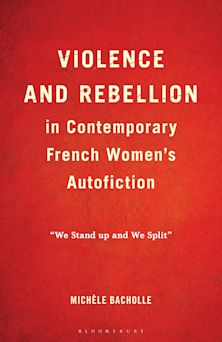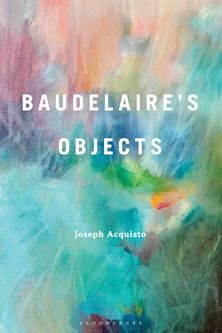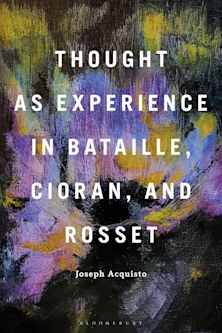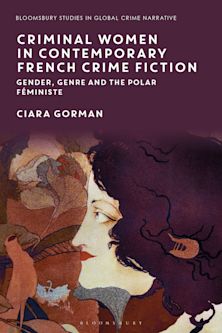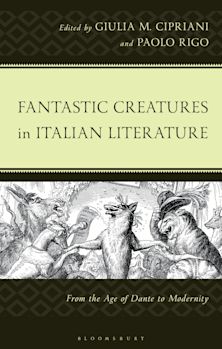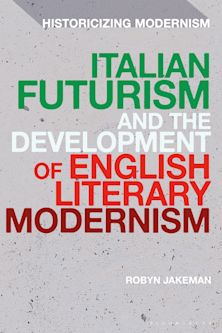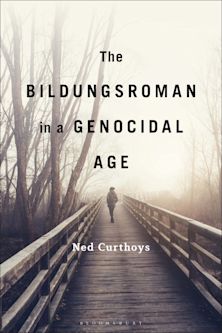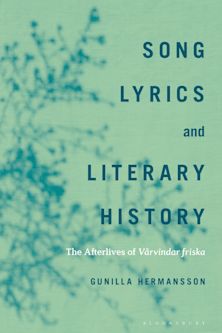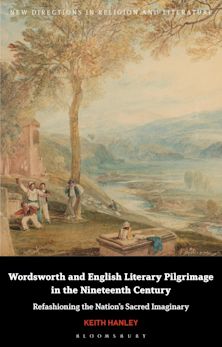- Home
- ACADEMIC
- Literary Studies
- Western European Literature
- Toward a Multicultural Configuration of Spain
Toward a Multicultural Configuration of Spain
Local Cities, Global Spaces
Ana Corbalán (Anthology Editor) , Ellen Mayock (Anthology Editor) , Alicia Castillo Villanueva (Contributor) , Javier de Entrambasaguas (Contributor) , María del Carmen Alfonso Garcia (Contributor) , Thomas Deveny (Contributor) , Donna Gillespie (Contributor) , Victoria L. Ketz (Contributor) , Sohyun Lee (Contributor) , Maryanne L. Leone (Contributor) , Pilar Martínez-Quiroga (Contributor) , Maria R. Matz (Contributor) , William J. Nichols (Contributor) , Diana Norton (Contributor) , Hayley Rabanal (Contributor) , Roberto Robles-Valencia (Contributor) , Megan Saltzman (Contributor) , Carole Salmon (Contributor) , Raquel Vega-Durán (Contributor)
Toward a Multicultural Configuration of Spain
Local Cities, Global Spaces
Ana Corbalán (Anthology Editor) , Ellen Mayock (Anthology Editor) , Alicia Castillo Villanueva (Contributor) , Javier de Entrambasaguas (Contributor) , María del Carmen Alfonso Garcia (Contributor) , Thomas Deveny (Contributor) , Donna Gillespie (Contributor) , Victoria L. Ketz (Contributor) , Sohyun Lee (Contributor) , Maryanne L. Leone (Contributor) , Pilar Martínez-Quiroga (Contributor) , Maria R. Matz (Contributor) , William J. Nichols (Contributor) , Diana Norton (Contributor) , Hayley Rabanal (Contributor) , Roberto Robles-Valencia (Contributor) , Megan Saltzman (Contributor) , Carole Salmon (Contributor) , Raquel Vega-Durán (Contributor)
This product is usually dispatched within 1 week
- Delivery and returns info
-
Free US delivery on orders $35 or over
You must sign in to add this item to your wishlist. Please sign in or create an account
Description
This collection of essays explores cultural phenomena that are shaping global identities in contemporary Spain. This volume is comprised of twenty essays that examine literary, documentary, and film representations of the multicultural configurations of Spain. All of the essays treat multiculturalism in Spain, focusing on reconfigured Spanish cities and neighborhoods through Latin American, African, and/or Eastern European migrations and cultures. Principal themes of the volume include urban space and access to resources, responses to the economic crisis, emerging family portraits, public versus private spaces, the local and the global, marginalities, migrations, and public expression of human and civil rights. This project examines the intercultural exchange that takes place in recent productions against an imaginary homogeneous Spanish national identity. These films, documentaries, and narratives seek to unsettle the Spanish preconceptions of the “Other(s).” Therefore, these texts construct a hybrid concept of the nation in which perceived national identities can be altered by interactions with other cultures from a broader world.
The originality of the work lies in its focus on contemporary Spanish literature, documentaries, and fictional film to foment exploration of how Spanish cities, big and small, are experiencing transformation in architecture, popular customs and festivals, economics, family dynamics, and social and political agency through the arrival of new residents from across the globe. Some of the essays question the very legitimacy of the term ‘multiculturalism,’ others examine the formation of new communities, and still others explore the changes in religious representations and the environmental effects of the tourist industry. Together, the essays offer a compelling portrait of the changing face of contemporary Spain.
Table of Contents
Ana Corbalán and Ellen Mayock
SECTION I: Literary Representations of the Local and the Global
Chapter 1: Urban Peripheries: Toward a New Vision of a Multicultural Community in Rosa Montero’s Instrucciones para salvar el mundo
Victoria Ketz
Chapter 2: “Una mezcla de amor profundo y asco”: A/Version of Multiculturalism in Lucía Etxebarria’s Cosmofobia
Hayley Rabanal
Chapter 3: The Sum of All: The Image of Madrid in Short Stories by Women Writers
María del Carmen Alfonso García
Chapter 4: City and Community in O club da calceta by María Reimóndez
Pilar Martínez-Quiroga
Chapter 5: Street, City, and Region as Global Contact Zones: Glocalized Self-Identities and Stereotypes in the Graphic Novel El Nord
Raquel Vega-Durán
SECTION II: Migration, Space, and Tourism in Documentary Films
Chapter 6: Immigration and Rhizomatic Itineraries of Resistance in the Global City: Reflections on two films: Si nos dejan and Raval, Raval
Megan Saltzman and Javier Entrambaguas
Chapter 7: Madrid as a glocal enclave in El otro lado: un acercamiento a Lavapiés by Basel Ramsis
Alicia Castillo Villanueva
Chapter 8: Migrating Virgin: Ecuadorian Immigration and the Transformation of Religious and Civic Space in Madrid
Maryanne L. Leone
Chapter 9: Rural Repopulation and the Fabrication of a Global Village in Spain: The Case of Aguaviva
Sohyun Lee
Chapter 10: Another Look at Immigration: La guerra del golf (The Golf War)
Lucía Sánchez
Thomas Deveny
SECTION III: Multicultural Encounters in Local Spaces: Cinematic Depictions
Chapter 11: Spaces Occupied, Literal and Metaphorical, in Contemporary Spanish Fiction and Film: 1997-2011
Donna Gillespie
Chapter 12: The City I Live in: Almodóvar Reshapes Madrid as Spain Goes Glocal
María R. Matz and Carole Salmon
Chapter 13: Geography of Capital: Torremolinos, Modernity and the Art of Consumption in Spanish Film
William Nichols
Chapter 14: Immigration and Spanish Subjectivity in No habrá paz para los malvados
Diana Norton
Chapter 15: When Multicultural Landscape Becomes Tragic Stage: Spanish Film and Immigration on the Verge of the Millennium
Roberto Robles-Valencia
CONTRIBUTORS
Product details
| Published | Nov 20 2014 |
|---|---|
| Format | Hardback |
| Edition | 1st |
| Extent | 232 |
| ISBN | 9781611476699 |
| Imprint | Fairleigh Dickinson University Press |
| Dimensions | 9 x 6 inches |
| Publisher | Bloomsbury Publishing |
About the contributors
Reviews
-
[The volume is] helpful in thinking about contemporary Spain but above all to inspire an interest in what's coming next. The future of this multicultural setting is an important chapter in the country's history, one that should be written with care and attention, paying attention to the conditions and situations that these trials suggest that, under the guidance of the editors, they have already detected major obstacles that must be overcome.
Hispanofila
-
Toward a Multicultural Configuration of Spain is a must [read] for those who wish to examine the social and cultural complexity of Spain.
Revista de ALCES XXI
-
A timely and thorough anthology. . . .This carefully researched book will appeal to scholars of contemporary Spain; European urban studies; studies on space and places; and twenty-first century diaspora, migration, and immigration, in general. . . .Together Corbalán and Mayock have put together a valuable and timely collection. . . .[This book] will surely be an essential text for many.
Studies in 20th & 21st Century Literature
-
Ana Corbalán and Ellen Mayock’s Toward a Multicultural Configuration of Spain: Local Cities, Global Spaces publication offers an important contribution to the study of Spain’s multicultural reconfiguration in the new millennium.... This collection showcases recent research that would appeal to graduate school students and scholars in a wide range of disciplines that encompass cultural studies, literature, and film.... The book provides a valuable tool as we begin to understand and examine the changing portrait of Spanish identity and its reconfiguration in the new millennium.
Hispania
-
Maryanne L. Leone’s discussion of María Cristina Carrillo Espinosa’s documentary La Churona: historia de una virgen migrante(2010) is an exemplary and engaging interdisciplinary piece on the represented realities of Ecuadorian Madrid. Pilar Martínez-Quiroga’s analysis of María Reimóndez’s O club da calcetais a lucid introduction in a Galician context of the literary and feminist possibilities or ‘rurban’ space. Megan Salesman and Javier Entrambaguas, on the independent films Si nos dejan(Ana Torres, 2003) and Raval, Raval(Antoni Verdaguer, 2006), combine purposeful arguments on chaos, containment, immigration and disruption with sharp filmic analysis.
Bulletin of Spanish Studies












